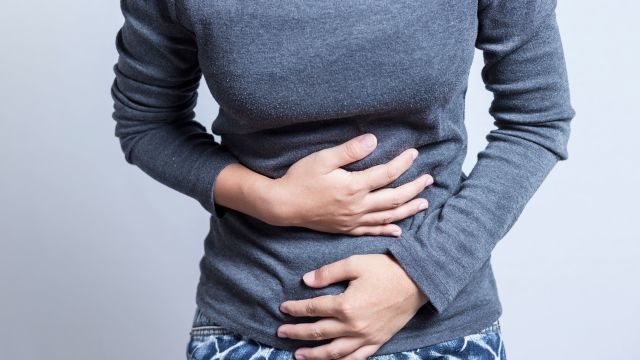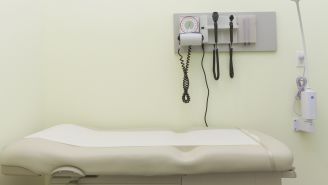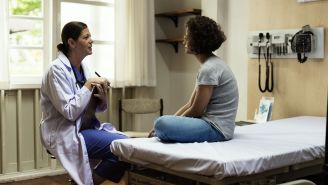That stopped-up feeling of constipation is uncomfortable, but you’ll likely encounter it at some point in your life. “It's probably one of the most common digestive disorders that we see in this country,” says Neville Fernandes, MD, gastroenterologist at Medical City Las Colinas in Irving, Texas.
While it doesn’t necessarily signal a health problem, it can sometimes indicate a more serious issue. Dr. Fernandes gave us the scoop on constipation: what it is, common causes, and tips for relieving symptoms of constipation.
How to tell if you are constipated
Healthcare providers (HCPs) classify constipation as a delayed emptying of the stomach. “Medically, we say it is when you have less than three bowel movements a week,” says Fernandes. “But it's hard to say because normal can mean anywhere from once every two days to three times a day.”
Signs of constipation
If you have one or more of the following symptoms, you may be constipated:
- Fewer than three bowel movements in a week
- Bowel movements that are hard, dry or painful
- Bloating and pain in the abdomen
- Difficulty having bowel movements, feeling the need to strain or bear down
- Feeling like you haven’t completely gone
- Nausea and vomiting
What causes constipation
Though many different things can lead to constipation, the following are common causes.
Medication
Fernandes says there are many medications that cause constipation—perhaps more than people realize. “Things like antidepressants, pain medicines, anticonvulsants, aluminum antacids, and blood pressure medications can all cause constipation.” If you’re constipated and take any of these drugs be sure to tell your HCP, who may make an adjustment in your prescription or change your medication.
Diet
A big part of having a healthy digestive tract is getting enough of the right nutrients—and that means fiber. “People just don’t get enough fiber in their diet and the colon requires fiber to stimulate it and help it contract,” says Fernandes. So, how much fiber do you need? The National Institute of Diabetes and Digestive and Kidney Diseases recommends that adults get 25 to 31 grams every day, depending on their age and sex.
Water intake
Staying hydrated isn’t just important for kidney and cognitive function, lubricating joints, and regulating body temperature—drinking water also helps with constipation by keeping your colon on track. “The function of the colon is to reabsorb water, and if you're dehydrated, your body is going to automatically try and reabsorb water, which is going to make you more constipated,” says Fernandes. Stay hydrated by drinking plenty of water each day—and even more during the warm summer months.
Certain medical conditions
Diabetes, irritable bowel syndrome (IBS), Parkinson’s disease, multiple sclerosis, hypothyroidism, inflammatory bowel diseases, muscular dystrophy, and spinal cord injuries can cause constipation. If you have one of these conditions and experience problems with bowel movements be sure to tell your physician, who can work out a treatment plan that’s right for you.
Changes in routine
If you’ve ever had troubling going while you’re on vacation, you’re not alone. “I think people get out of their routine, may be in an unfamiliar environment, they're eating irregularly so they become constipated,” says Fernandes.
How to know when it’s serious
If you experience frequent constipation and have unexplained weight loss, rectal bleeding, or a family history of colon cancer, see your HCP, says Fernandes. It could be anal fissures, hemorrhoid complications, rectal prolapse and, in rare cases, fecal impaction or bowel obstruction. It can also result from gynecological problems such as fibroids or even ovarian cancer, which can compress the intestine. Children may be born with Hirschsprung's disease, meaning they do not have the bowel nerves that push the stool through. The condition is treated with surgery.
What to do
If constipation does strike, there are some things you can do to relieve the discomfort and help your colon get back on track. “Over-the-counter laxatives are usually a good start,” says Fernandes. But be careful not to overuse them. “Some people are so dependent on laxatives that if they don't take them, they can't go to the bathroom regularly,” he says. Talk to your HCP before you start taking them. Bulk-forming agents, stool softeners, lubricants or prescription medicines may help, too.
Fernandes says the most important piece of advice he can give is to take care of your body. “I would encourage people to focus on making sure they’re eating a balanced, high fiber diet, drinking lots of fluids, exercising regularly, and disciplining themselves to set aside time to use the toilet.”






